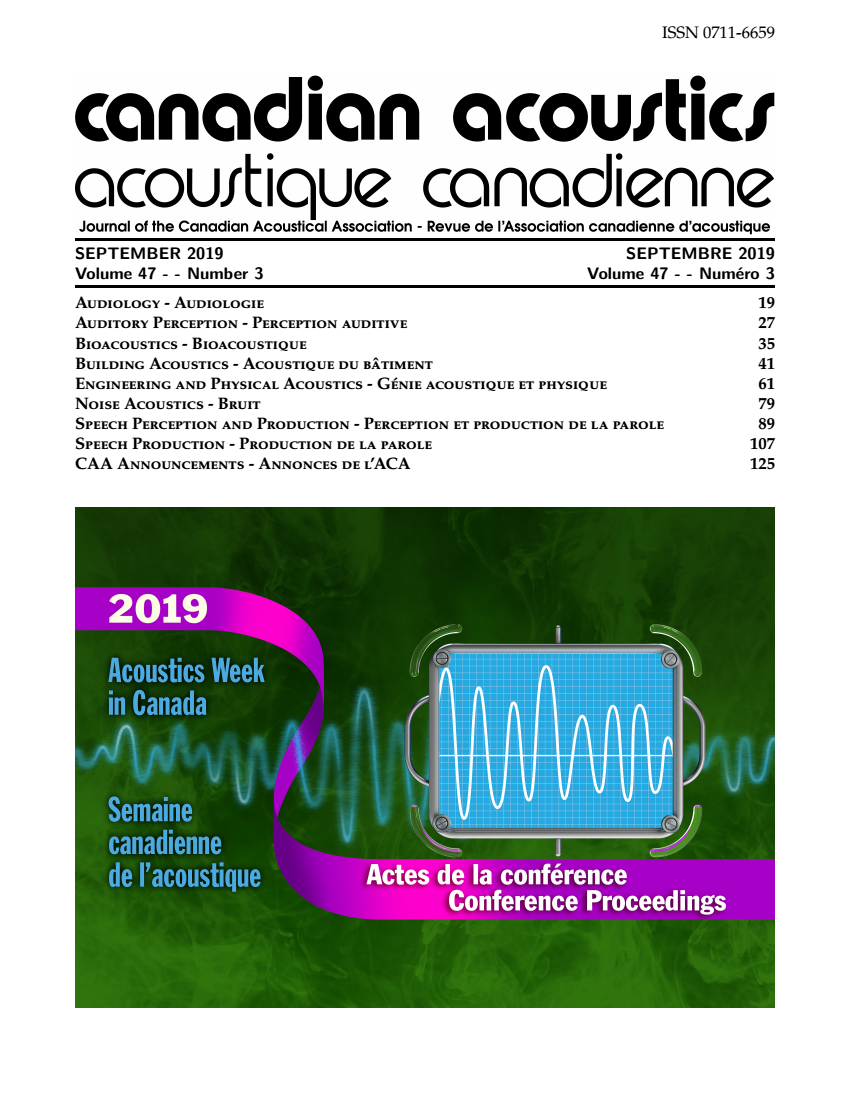Measuring the dispersion of density in head and neck cancer patients' vowel spaces: The vowel dispersion index
Résumé
The present study introduces a measure of the dispersion of density throughout the vowel space, which we refer to as the vowel dispersion index. The vowel dispersion index is based on calculating the total variation of the density values in Story & Bunton’s (2017) convex hull representation of vowel space density. Overall, the vowel dispersion index quantifies how much change there is throughout the vowel space density. When the value is low, the speaker tends to produce most of their vowels in a central location like /?/, often characteristic of hypoarticulated or reduced speech. When the value is high, the speaker often spreads their vowel productions throughout the vowel space, as is characteristic of hyperarticulation. The vowel density index is calculated and analyzed for a small sample of recordings from head and neck cancer patients at different stages pre- and post-surgery. Consideration is given to 1) how the index corresponds with visual analysis of their vowel space density and 2) what the dispersion of density throughout the vowel space suggests about the communication strategies these patients employ while speaking. The vowel density index generally corresponds with visual impressions of the vowel space density. Additionally, the patients are overall found to employ hyperarticulation strategies to increase the clarity of the information in their speech post-surgery. These findings are discussed with respect to phonetic theory, principally, Lindblom’s (1990) H&H theory.
Fichiers supplémentaires
Publié-e
Comment citer
Numéro
Rubrique
Licence
Author Licensing Addendum
This Licensing Addendum ("Addendum") is entered into between the undersigned Author(s) and Canadian Acoustics journal published by the Canadian Acoustical Association (hereinafter referred to as the "Publisher"). The Author(s) and the Publisher agree as follows:
-
Retained Rights: The Author(s) retain(s) the following rights:
- The right to reproduce, distribute, and publicly display the Work on the Author's personal website or the website of the Author's institution.
- The right to use the Work in the Author's teaching activities and presentations.
- The right to include the Work in a compilation for the Author's personal use, not for sale.
-
Grant of License: The Author(s) grant(s) to the Publisher a worldwide exclusive license to publish, reproduce, distribute, and display the Work in Canadian Acoustics and any other formats and media deemed appropriate by the Publisher.
-
Attribution: The Publisher agrees to include proper attribution to the Author(s) in all publications and reproductions of the Work.
-
No Conflict: This Addendum is intended to be in harmony with, and not in conflict with, the terms and conditions of the original agreement entered into between the Author(s) and the Publisher.
-
Copyright Clause: Copyright on articles is held by the Author(s). The corresponding Author has the right to grant on behalf of all Authors and does grant on behalf of all Authors, a worldwide exclusive license to the Publisher and its licensees in perpetuity, in all forms, formats, and media (whether known now or created in the future), including but not limited to the rights to publish, reproduce, distribute, display, store, translate, create adaptations, reprints, include within collections, and create summaries, extracts, and/or abstracts of the Contribution.


